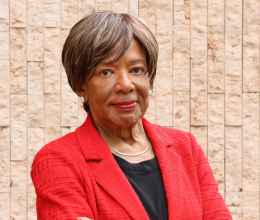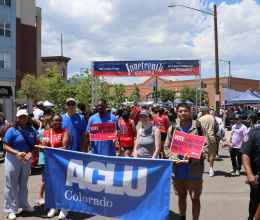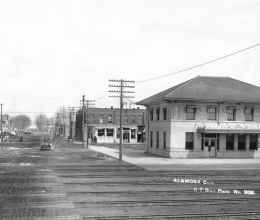This commentary was originally published in Colorado Politics on June 16, 2025.
I was raised in a segregated Black community in Atlanta. My neighborhood, Collier Heights, was unique in that, in the 1950s and 1960s, it was one of only a handful of places in the country where Black Americans could build a middle-class life for themselves and their loved ones. Business owners, professionals and caretakers moonlit as civil rights activists. I was among the first Black students to integrate into Atlanta Public Schools. It was in this tight-knit community, united by a common mission, that showed me how our struggle for full participation in civic life and full equality of the law is so critical to our democracy — and shared between so many of us.
Perhaps in no other struggle is this most vital than in our ability to access the ballot box.
When I moved to Colorado, I was struck by the stark differences in voter access in comparison to my home state of Georgia. Universal mail-in ballots, text reminders and updates, and streamlined voter registration processes are facts of life in this state and have been so for years. They have underpinned safe, secure and accessible elections across multiple election cycles — even in years where national dialogues were rife with disinformation and animosity. Most recently, in the 2024 presidential election, nearly 80% of all active voters participated — among the highest rates in the nation.
As I acquainted myself with additional grassroots organizations, however, I began to learn this initial impression disguised enduring inequities for low-income voters and non-white voters. In local elections for instance, practices such as holding elections in off-years and inequitable maps continue to exclude Black, Brown, low-income and youth voters. In fact, in 2023, the El Paso County Commissioners nearly disenfranchised Black and Brown voters with a map that diluted their votes in southern Colorado Springs. It was only through sustained community effort the county enacted equitable maps.
On the Western Slope, Indigenous communities continue to be underrepresented at the ballot box. As a 2024 Bolts article highlights, logistic challenges and persistent mistrust of government officials, stemming from generations of state-sanctioned violence and genocide, continue to create barriers for Indigenous voters.
With these persistent challenges, voting rights advocates successfully collaborated with state lawmakers to pass SB25-001, or the Colorado Voting Rights Act. This sweeping legislation will address longstanding inequities by explicitly prohibiting any actions that result in material disparities between voters of protected race, color, or language minority groups. It also protects LGBTQ+ voters, ensuring voter qualifications do not discriminate based on someone’s actual or perceived gender identify, expression, or sexual orientation. These protections, and many more, were only possible through the relentless efforts of organizers and allies under the dome.
For so long, my own family, community and ancestors struggled for equal access to the ballot box. Shut out of their own democracy, we had to fight to get our voices heard through nonviolent protest, civil disobedience and community organizing. Our schools were segregated and underfunded, our roads were ill-maintained, and our loved ones were sick. Though these inequities persist, equal access to the ballot box is a fundamental tool to address them.
This makes ongoing efforts to dismantle the federal Voting Rights Act and erect new barriers to the ballot box even more insidious. Without our vote, we lose so much of our power. We lose the ability to determine our own futures. We lose the ability to build a better life for our children and grandchildren. Far from protecting us, it erects walls between those who can participate in civil life and those who cannot, between those who matter and those who do not.
This is intolerable.
Though the passage of this law will not resolve all our challenges, they provide our communities with essential tools to make our already-great elections even more accessible. It is a beacon of hope, a shining light that to be inclusive, to listen to communities across the state, is fundamental to our state. It is as much a part of this state as our snow-capped peaks, a microbrew IPA, or a columbine growing in an alpine tundra. To be a Coloradan is to strive toward justice. United, we will protect, defend and extend the civil rights and civil liberties of all people in Colorado.


